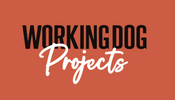Loud and Luminous | Online Exhibition - Week 6

Loud and Luminous, 2020 Theme - Equality. Celebrating 100 Female Photographers.
This week we feature artists Lib Ferreira, Lidia D’Opera, Lilli Waters, Lindi Heap, Lisa Hogben, Lori Cicchini, Lorrie Graham, Lou Gilbert, Luella Dawson and Martine Perret.
|
|
Lib Ferreira
Diana is a rare woman of her generation. She grew up in a time when women had very few opportunities, but she went against expectations and never married or had children. If you ask her why, she says she was too busy and it was not something she felt compelled to do. She learnt the harp and played in many orchestras in her time. Now she loves teaching harp. Although life recently took a turn for her, on the discovery of a brain tumour, she has no plans to slow down - not when there is still so much to do!
|
 |
Lidia D’Opera
The world view of Iran has been dictated by media representation, one influenced by politics and another by religion. |
 |
Lilli Waters
The river is always moving; alive, never the same. Our bodies are largely made of water, and so many of our daily rituals, our beliefs, our rules for living, our imaginings and our figures of speech are connected to water. We talk about ebb and flow, about testing the water, about fluidity of identity. Water is a physical and spiritual power, a metaphor, a means of survival. |
 |
Lindi Heap
This image is about the distinct gender divide in kids clothing and questions the cultural bias we have to each. Ie “pink is for girls” and “blue is for boys”. Does how we dress our children keep perpetuating gender inequality? When my daughter was born I grappled with what sort of clothing I should dress her in. I saw “girls” clothes as too “girly”– fragile, pretty, frivolous, and I did not want this for my daughter. Boys clothes on the other hand look strong, active, serious, dominant. |
 |
Lisa Hogben
One of the seminal moments in my life was photographing the Australian Government’s Apology to The Stolen Generations of Aborigines. It was a great privilege to be one of only five additional photographers in the Parliamentary gallery to witness one of the most important events in Australia’s history but it was a much bigger privilege to be there amongst my friends to witness their reactions of solemnity, pain and joy they had after having had their lives blighted by the inhumane policies that intentionally and forcibly set out to separate Aboriginal children from their families to create an unpaid labour force. This photo of two women who left Parliament after running the gamut of emotions always astounded me. That Aboriginal people were able to say “Thanks” for saying “Sorry” was to me a sign of a people, who though had been so terribly treated had an incredible generosity of spirit. While Aboriginal voices had not been heard at all before “The Apology” it certainly was a step in the right direction in beginning the long process of redressing the past and bringing equality to people who had, up until 1967 been regarded in their own country as having no more rights than flora and fauna and thus were not considered humans that could be counted in any census. |
 |
Lori Cicchini
Equality – my interpretation of my own journey. |
 |
Lorrie Graham
Larissa Stores (aged 8 in 1999) had been Nipper since she was four. The Nipper is a young Life Saver in training. They can start as young as four years of age, however at this age they are called Minnows. Hundreds of children train as Nippers on Sydney's beaches each summer. |
 |
Lou Gilbert
Yolanda is street smart and speaks her mind. I watched her walk up to a car of known gang members in a high-crime South African township to seek their input for a local community project. When asked later by her peers, why she took the risk, she replied ‘it’s important to get everyone’s views. If these guys think we care they might care more too.’ |
 |
Luella Dawson
I wanted to focus on gender expression and how much it can affect ones life. For one to feel slightly feminine or slightly masculine; to show that it’s more than okay to not know exactly what you are. There is a whole spectrum of gender and anyone can be placed anywhere, however they like. It makes a hell of a difference when one can finally feel as though they can truly be themselves through fashion, or interests etc by accepting it within themselves. |
 |
Martine Perret
The Ebola outbreak in the eastern Democratic Republic of the Congo (DRC) is the 10th outbreak and more than 2,000 people have died since it started in August 2018. |

